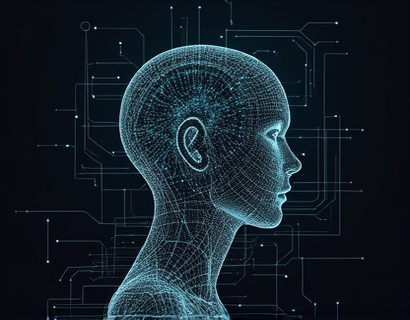AI-Powered Legal Automation: Transforming Efficiency and Insights for Legal Experts
The legal industry is undergoing a significant transformation with the advent of AI-powered legal automation. This cutting-edge technology is revolutionizing the way legal professionals approach their work, offering advanced tools that automate document analysis, case research, and compliance checks. By integrating artificial intelligence into legal processes, firms and practitioners can save time, reduce costs, and enhance client outcomes. This article delves into the transformative impact of AI in legal services, exploring how legal experts can leverage these advanced technologies to streamline their practices and maintain a competitive edge.
Understanding AI in Legal Automation
AI-powered legal automation is not just about automating repetitive tasks; it's about leveraging sophisticated algorithms and machine learning to provide deep insights and accurate analysis. These tools can process vast amounts of legal data, identify patterns, and extract relevant information with a level of precision that surpasses manual methods. The core components of AI in legal automation include natural language processing (NLP), machine learning, and data analytics. NLP enables the system to understand and interpret legal texts, while machine learning allows the system to improve its performance over time based on feedback and new data. Data analytics provides actionable insights that can inform strategic decisions.
Automating Document Analysis
One of the most impactful applications of AI in legal automation is document analysis. Traditional methods of reviewing contracts, agreements, and other legal documents are time-consuming and prone to human error. AI-powered tools can quickly scan and analyze documents, extracting key information such as parties involved, terms and conditions, and potential risks. This not only speeds up the review process but also ensures a higher level of accuracy. For instance, AI can identify specific clauses that may be unfavorable to a client or highlight areas that require negotiation. By automating this process, legal professionals can focus on higher-value tasks that require human judgment and expertise.
Enhancing Case Research
Case research is a critical component of legal practice, yet it is often a tedious and time-intensive task. AI-powered legal automation tools can significantly enhance this process by quickly searching through vast databases of case law, statutes, and legal precedents. These tools use advanced algorithms to identify relevant cases and summarize key points, saving legal professionals hours of manual research. Moreover, AI can provide predictive analytics, helping lawyers anticipate court decisions and strategize accordingly. This level of efficiency and insight can give legal firms a significant advantage in litigation and other legal proceedings.
Ensuring Compliance and Risk Management
Compliance with laws and regulations is a constant challenge for legal professionals. AI-powered tools can automate compliance checks, ensuring that documents and practices adhere to current legal standards. These tools can monitor changes in legislation and alert firms to potential compliance issues, reducing the risk of costly penalties and reputational damage. Additionally, AI can help in identifying and mitigating risks by analyzing contracts and identifying potential legal pitfalls. This proactive approach to compliance and risk management not only protects clients but also enhances the firm's reputation for reliability and expertise.
Streamlining Workflows
The integration of AI in legal workflows can lead to significant improvements in efficiency and productivity. By automating routine tasks, legal professionals can allocate more time to strategic and high-value activities. For example, AI can handle initial document reviews, allowing attorneys to focus on analyzing findings and developing legal strategies. This shift in focus not only improves the quality of legal services but also enhances client satisfaction. Moreover, AI-powered workflows can be integrated with existing legal technology platforms, ensuring a seamless transition and minimal disruption to established processes.
Improving Client Outcomes
The ultimate goal of any legal practice is to deliver exceptional results for clients. AI-powered legal automation tools can contribute to this goal by providing more accurate and timely insights. With the ability to process and analyze large volumes of data quickly, these tools can identify opportunities and risks that might be overlooked in a manual review. This enhanced level of analysis can lead to better legal advice, more effective negotiations, and ultimately, more favorable outcomes for clients. Clients are increasingly expecting legal services to be efficient, cost-effective, and results-driven, and AI can help firms meet these expectations.
Challenges and Considerations
While the benefits of AI in legal automation are clear, there are several challenges and considerations that legal professionals must address. One of the primary concerns is the accuracy and reliability of AI systems. Legal matters often involve complex and nuanced interpretations, and AI must be trained on high-quality, relevant data to perform effectively. Continuous monitoring and updating of AI models are essential to ensure they remain accurate and up-to-date with changing legal landscapes. Additionally, there is a need for legal professionals to develop a deeper understanding of AI technologies to effectively integrate them into their practice.
Another consideration is the ethical use of AI in legal practice. Issues such as data privacy, bias in algorithms, and the potential for over-reliance on AI must be carefully managed. Legal firms must establish clear guidelines and protocols to ensure that AI is used responsibly and ethically. Transparency with clients about the use of AI in their cases is also crucial to maintain trust and confidence.
Future Trends in AI-Powered Legal Automation
The future of AI in legal automation is promising, with ongoing advancements expected to further enhance its capabilities. One trend is the increasing use of hybrid models that combine rule-based systems with machine learning, providing a balance between precision and flexibility. These models can handle both structured and unstructured data, making them more versatile for a wide range of legal tasks. Another trend is the integration of AI with other emerging technologies such as blockchain and the Internet of Things (IoT), which can provide new avenues for legal innovation.
Additionally, the rise of low-code and no-code platforms is making AI-powered legal tools more accessible to a broader range of legal professionals. These platforms allow users to build custom automation solutions without extensive coding knowledge, democratizing access to advanced technologies. As these platforms evolve, we can expect to see more tailored solutions that address specific legal practice needs.
Conclusion
AI-powered legal automation is transforming the legal industry by enhancing efficiency, accuracy, and insights. By automating document analysis, case research, and compliance checks, legal professionals can focus on high-value tasks that drive exceptional client outcomes. While there are challenges to consider, the benefits of AI in legal practice are undeniable. As the technology continues to evolve, legal firms and practitioners who embrace AI will be better positioned to succeed in a rapidly changing market. The future of legal services is undoubtedly intertwined with advanced technology, and those who adapt will thrive.










































